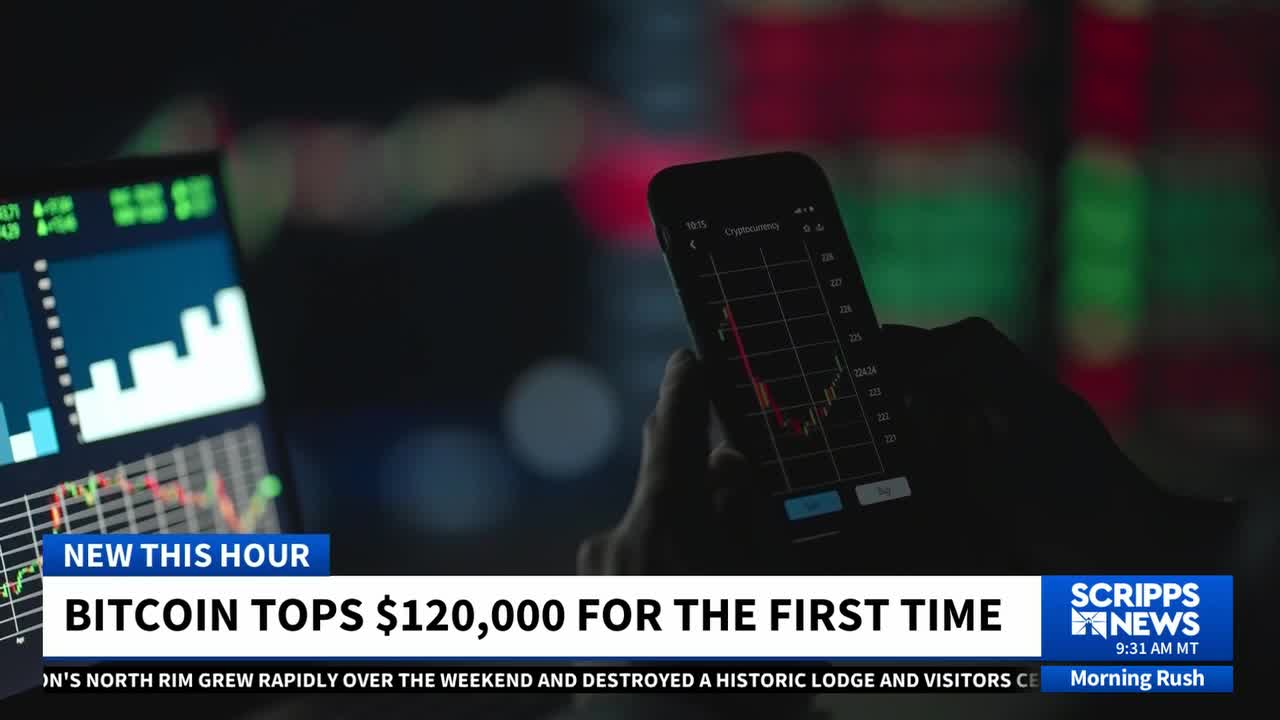
Call it part curiosity and part conspicuous attempt to prove a point, but I gathered up the nerve and asked the question anyway: “Do you guys accept Bitcoin?” The barista took it as a serious question. “Ah, no,” she replied. “I don’t think we do.”
Undeterred, I went ahead with the transaction, paying for my soy latte with the same credit card I’ve used without fuss or fees for decades. The wheels of commerce kept turning.
There are problems and there are solutions and then there are solutions in search of problems. The last of those possibilities could describe the gilded world of crypto currencies, or what the Economist newspaper recently called “the ultimate swamp asset.”
Given its current uselessness as means of ordinary transactions, crypto could reasonably be viewed as $4 trillion swamp land.
“You may have noticed something about cryptocurrencies: They don’t do anything,” wrote Ben McKenzie in his 2023 book, “Easy Money: Cryptocurrency, Casino Capitalism, and the Golden Age of Fraud.”
“Cryptos aren’t tied to anything of real value, unlike shares in a company or a commodities future. Even the most arcane financial products have some relation to something of use in the material world.”
In fact, crypto contributes virtually nothing to the U.S. economy. Digital coins don’t generate growth, put people to work or boost productivity. Though advocates point to the limited supply of a given currency, that says little about the currency’s actual value. There is, for example, a limited supply of my worn-out socks.
The investor John Paulson, who correctly predicted the subprime mortgage meltdown, once called cryptocurrencies “a limited supply of nothing.“
Good intentions rooted in economic stress

Bitcoin at all-time high as lawmakers focus on pro-crypto legislation
President Donald Trump, once a crypto skeptic, has become a major promoter of the industry.
Scripps News
According to professor Bill Maurer, a cultural anthropologist and director of the Institute for Money, Technology & Financial Inclusion at UC Irvine, the concept of digital money is rooted in periods of economic stress.
One of the first non-dollar systems, Ithica HOURS, was created during the 1991 recession and functioned as a time-based bartering arrangement to boost the local economy of Ithica, New York. Other small-scale alternatives to traditional money, often known as LETs (Local Exchange Trading systems), have come and gone as well.
“Those systems were started because people were unemployed and needed to earn money,” Maurer told me in a recent interview. “They had skills and thought they’d share their skills with others in the community through a separate economy or monetary system. But they were complimentary currencies; they didn’t replace the dollar, they supplemented it.”
And then came Bitcoin, also created with the best of intentions amid the financial crisis in 2009.
“Bitcoin was intended to be an alternative to the banking system,” Maurer said, “and had it gone in that direction, it might have been interesting, but instead it’s become an object of speculation. It’s like a digital work of art, which only has value because others say it has value.”
Though cryptocurrencies are largely useless as a means of payment for most people, Maurer thinks genuine value could eventually emerge through the blockchain technologies that underpin them.
“The benefits are not what was initially intended, and to date are not being realized,” he said. “There are serious investors, though, who are watching the space closely, and are looking at which blockchain system is the most resilient, because if there were to be something built on top of these systems, that’s where you’d want to put your money.”
Back to the future with stablecoins
Now however, the important action in the crypto space is in stablecoins, a type of digital money whose value is usually tied to an asset like the U.S. dollar.
For countries with efficient banking systems, transacting business with stablecoins seems — again — like a solution in search of a problem. As U.C. Berkeley economics professor Barry Eichengreen noted, there is no guarantee that the dollar peg will hold, which could reprise the economic chaos of the so-called free banking era of the 19th century. The bipartisan Genius Act which was recently signed into law by President Trump addresses that concern, but how diligent regulators will be in enforcing the rules is an open question.
“It seems like everything new is old again, perhaps because we have unlearned the lessons of our history,” Eichengeen wrote in a New York Times op-ed. “When Mr. Trump describes the late 19th century as a time when Americans ‘were at our richest,’ maybe someone should remind him that life expectancy was just over 40, and real income was 11 percent what it is today.”
The path forward fueled by lobbying dollars
As crypto tycoons deploy their billions to influence regulation and legislation, the potential for conflicts of interest is ever present.
According to the Economist, “an industry that dreamed of being above politics has become synonymous with self-dealing…Crypto has not just facilitated fraud, money-laundering and other flavours of financial crime on a gargantuan scale. The industry has also developed a grubby relationship with the executive branch of America’s government that outstrips that of Wall Street or any other industry.”
In August 2021, Trump told Fox Business that crypto seems like a “scam,” that digital currencies may be “fake,” and that investing in them is “potentially a disaster waiting to happen.” Yet last month, the Trump administration moved to allow crypto assets to be counted as collateral for home mortgages, potentially stimulating — or destabilizing — the largest store of wealth for most households. If you’re looking for the seeds of the next financial crisis, start here.
But creating a more modern financial system doesn’t have to end badly.
“Society has a choice,” asserted the Bank for International Settlements in its latest annual report. “The monetary system can transform into a next-generation system built on tried and tested foundations of trust and technologically superior, programmable infrastructures. Or society can relearn the historical lessons about the limitations of unsound money, with real societal costs, by taking a detour involving private digital currencies that fail the triple test of singleness, elasticity and integrity.”
History also informs us to be wary of naysaying forecasts.
In 1977, the founder of Digital Equipment opined that “there is no reason anyone would want a computer in their home.” A half-century earlier, the president of Warner Brothers asked, “Who the hell wants to hear actors talk?” The British recording label Decca got it wrong in rejecting a certain contract in 1962. “We don’t like their sound” the company wrote about the Beatles, “and guitar music is on the way out.”
So maybe crypto will turn out to be a solution to an actual problem. Meanwhile, investors should remain mindful of comedian John Oliver’s take on the industry.
“Crypto currencies,” he joked, “are everything you don’t understand about money combined with everything you don’t understand about computers.”
Caveat emptor.
Tom Saler is an author and freelance journalist in Madison. He can be reached at tomsaler.com




